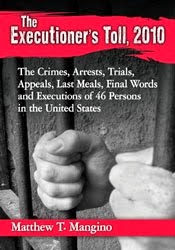Marshae Jones, a 27-year-old Birmingham woman, was indicted
by a Jefferson County grand jury on a manslaughter charge. She was taken into
custody on Wednesday.
Though Jones didn’t fire the shots that killed her unborn
baby girl, authorities say she initiated the dispute that led to the gunfire.
Police initially charged 23-year-old Ebony Jemison with manslaughter, but the
charge against Jemison was dismissed after the grand jury failed to indict her.
The shooting happened about noon on Dec. 4, 2018, outside
Dollar General on Park Road. Officers were dispatched to the scene on a report
of someone shot but arrived to find the shooting victim – later identified as
Jones - had been picked up and driven to Fairfield. Police and paramedics then
found the Jones at a Fairfield convenience store.
Jones was taken from Fairfield to UAB Hospital. She was five
months pregnant and was shot in the stomach. The unborn baby did not survive
the shooting.
“The investigation showed that the only true victim in this
was the unborn baby,’’ Pleasant Grove police Lt. Danny Reid said at the time of
the shooting. “It was the mother of the child who initiated and continued the
fight which resulted in the death of her own unborn baby.”
Reid said the fight stemmed over the unborn baby’s father.
The investigation showed, he said, that it was Jones who initiated and pressed
the fight, which ultimately caused Jemison to defend herself and unfortunately
caused the death of the baby.
"Let’s not lose sight that the unborn baby is the
victim here,’’ Reid said. “She had no choice in being brought unnecessarily
into a fight where she was relying on her mother for protection."
The 5-month fetus was "dependent on its mother to try
to keep it from harm, and she shouldn’t seek out unnecessary physical altercations,”
Reid added.
Jones will be transferred to the Jefferson County Jail where
she will be held on $50,000 bond.
The indictment and prosecution is being handled by the
Jefferson County Bessemer Cutoff District Attorney’s Office. Lynneice
Washington, the district attorney in that office, could not be reached for
comment. Jefferson County is divided into two divisions and the Bessemer Cutoff
covers the western portion of the county, including Pleasant Grove.
News of Jones’ grand jury indictment outraged many,
including women’s rights activists.
The Yellowhammer Fund, a member of the National Network of
Abortion Funds which helps women access abortion services, released a statement
Wednesday night. The group gained national attention after the passage of
Alabama’s new abortion law.
“The state of Alabama has proven yet again that the moment a
person becomes pregnant their sole responsibility is to produce a live, healthy
baby and that it considers any action a pregnant person takes that might impede
in that live birth to be a criminal act,’’ Executive Director Amanda Reyes said
in the statement.“
“Today, Marshae Jones is being charged with manslaughter for
being pregnant and getting shot while engaging in an altercation with a person
who had a gun. Tomorrow, it will be another black woman, maybe for having a
drink while pregnant. And after that, another, for not obtaining adequate
prenatal care,” Reyes said.
“We commit ourselves to making sure that Marshae is released
from jail on bond, assisting with her legal representation, and working to
ensure that she gets justice for the multiple attacks that she has endured,’’
Reyes said.
To read more CLICK HERE







